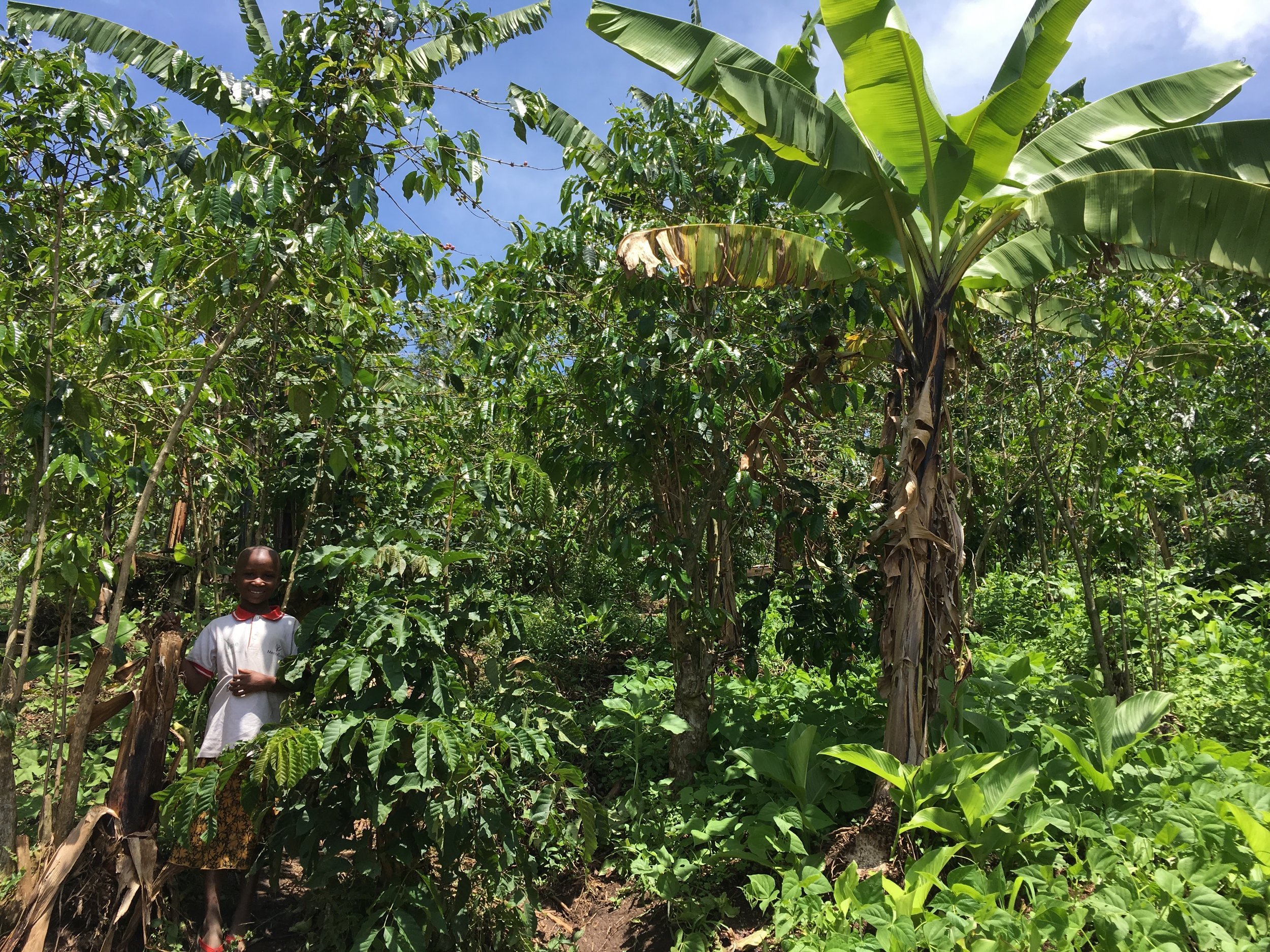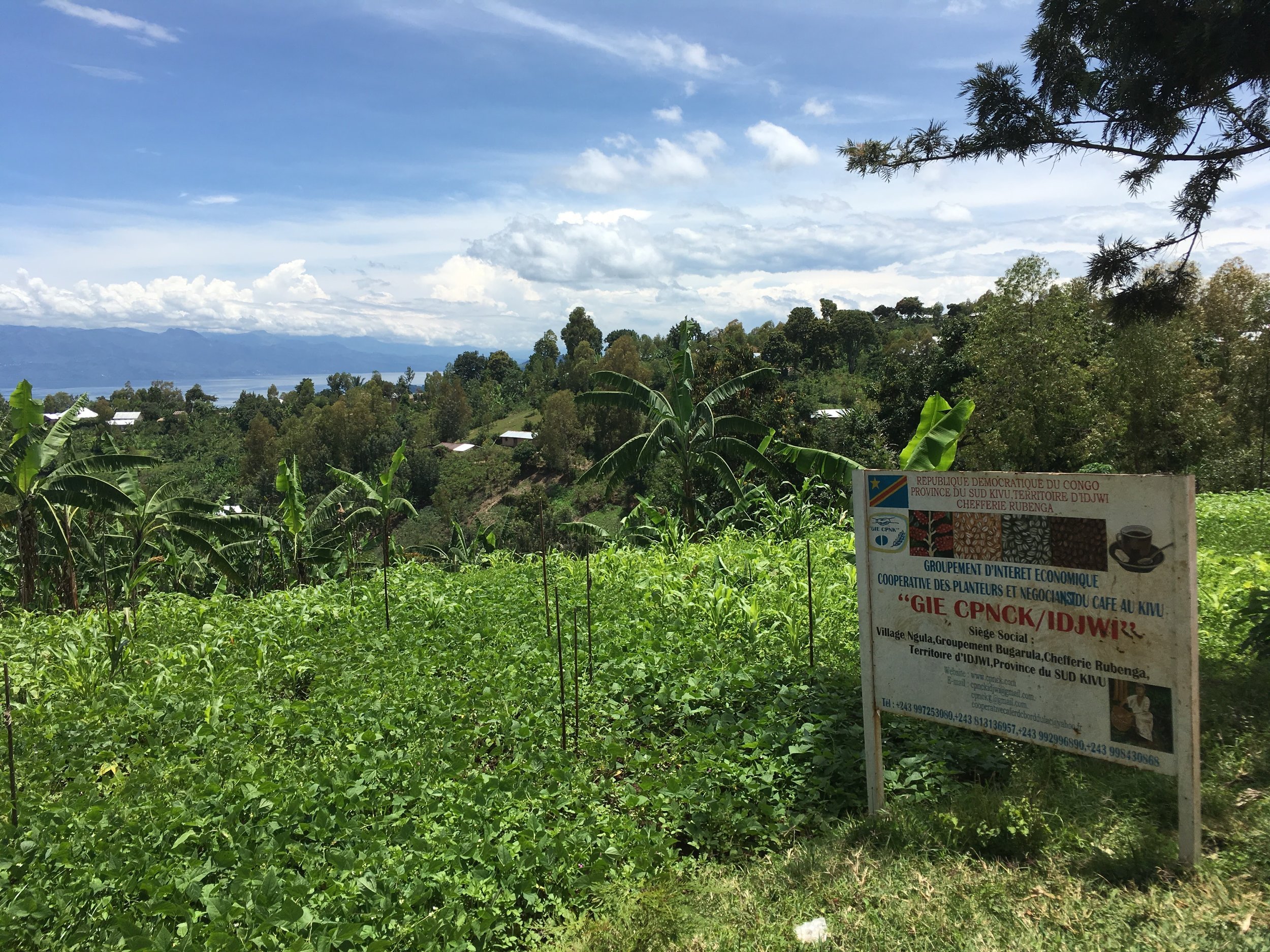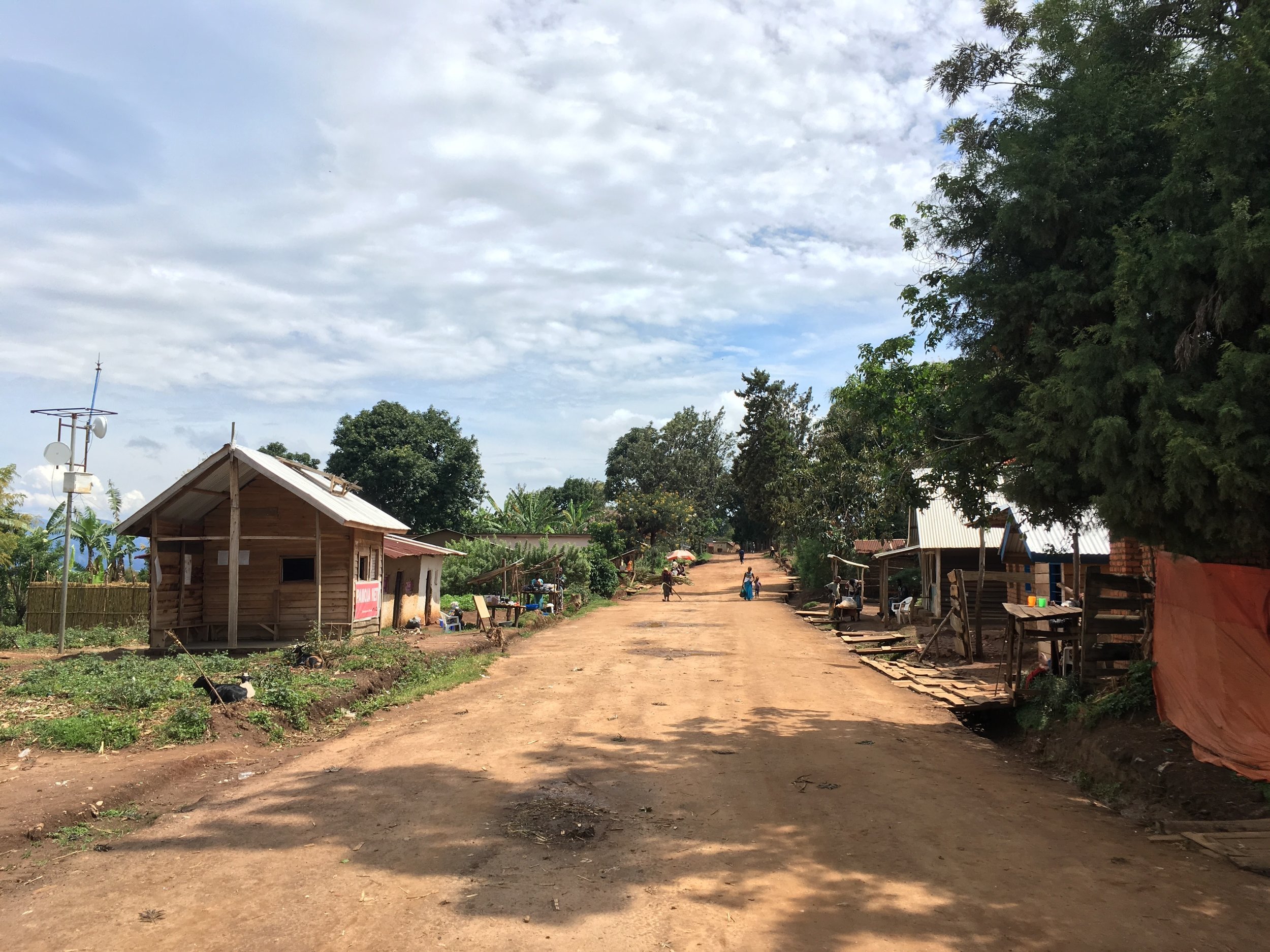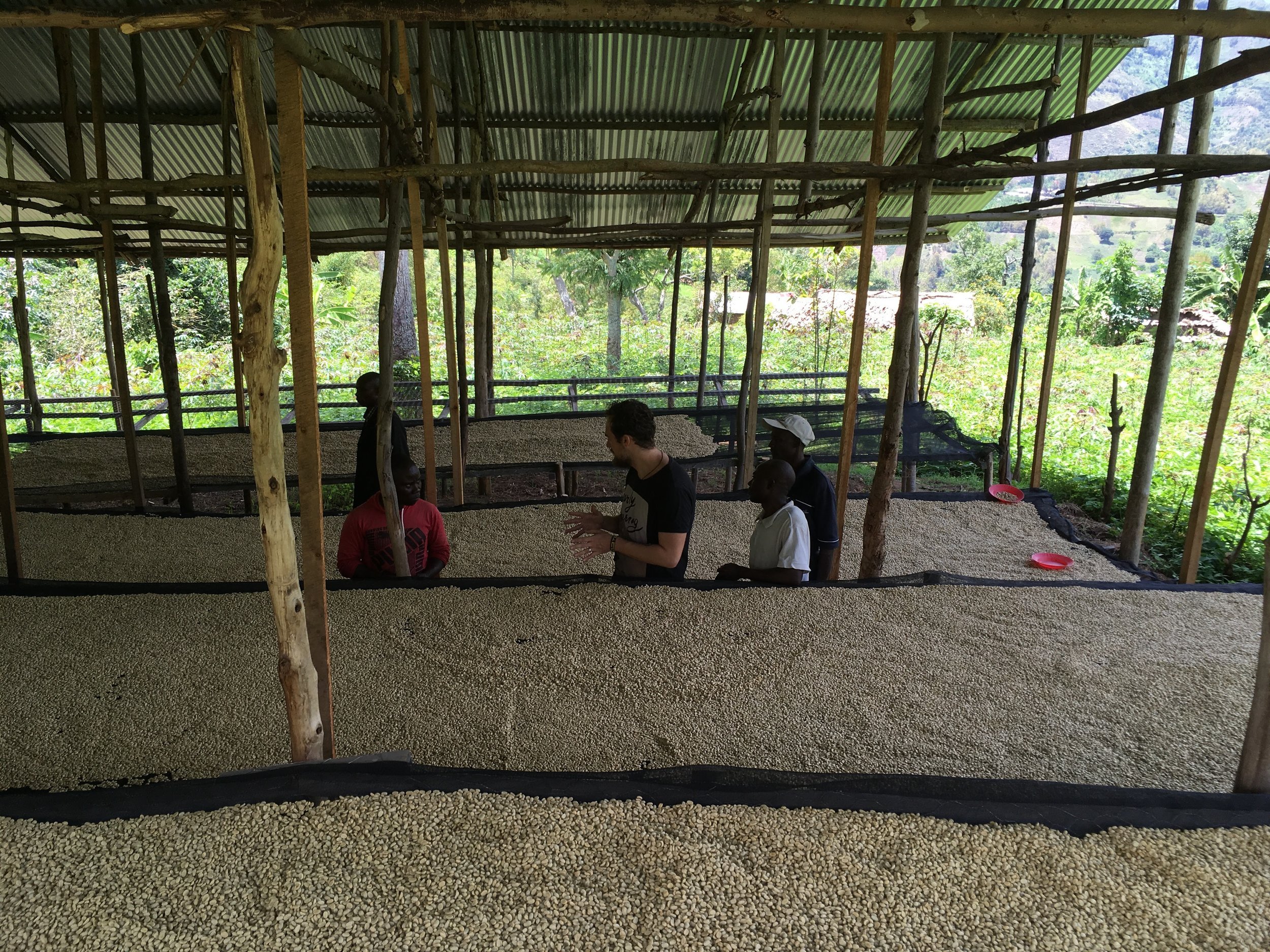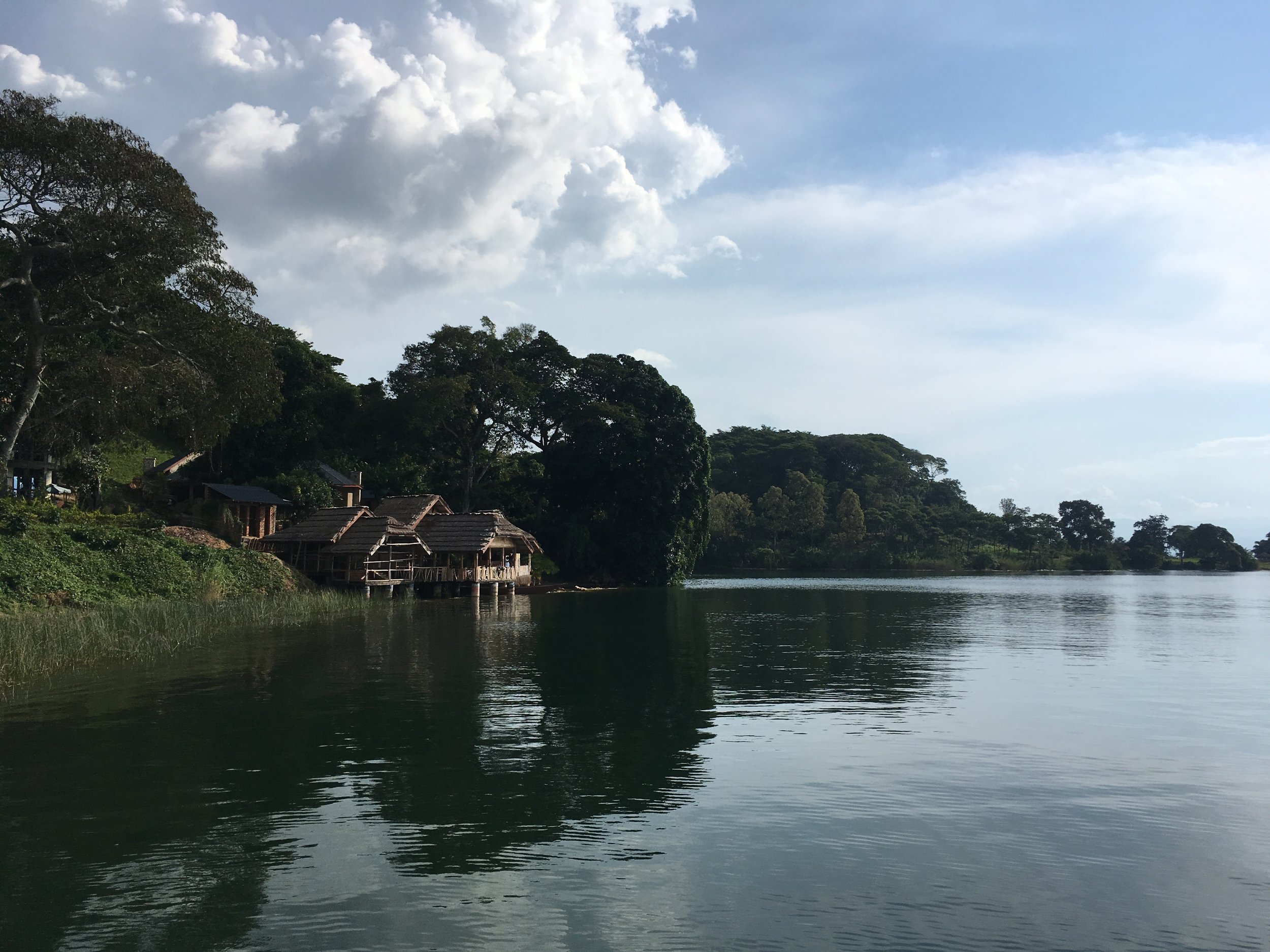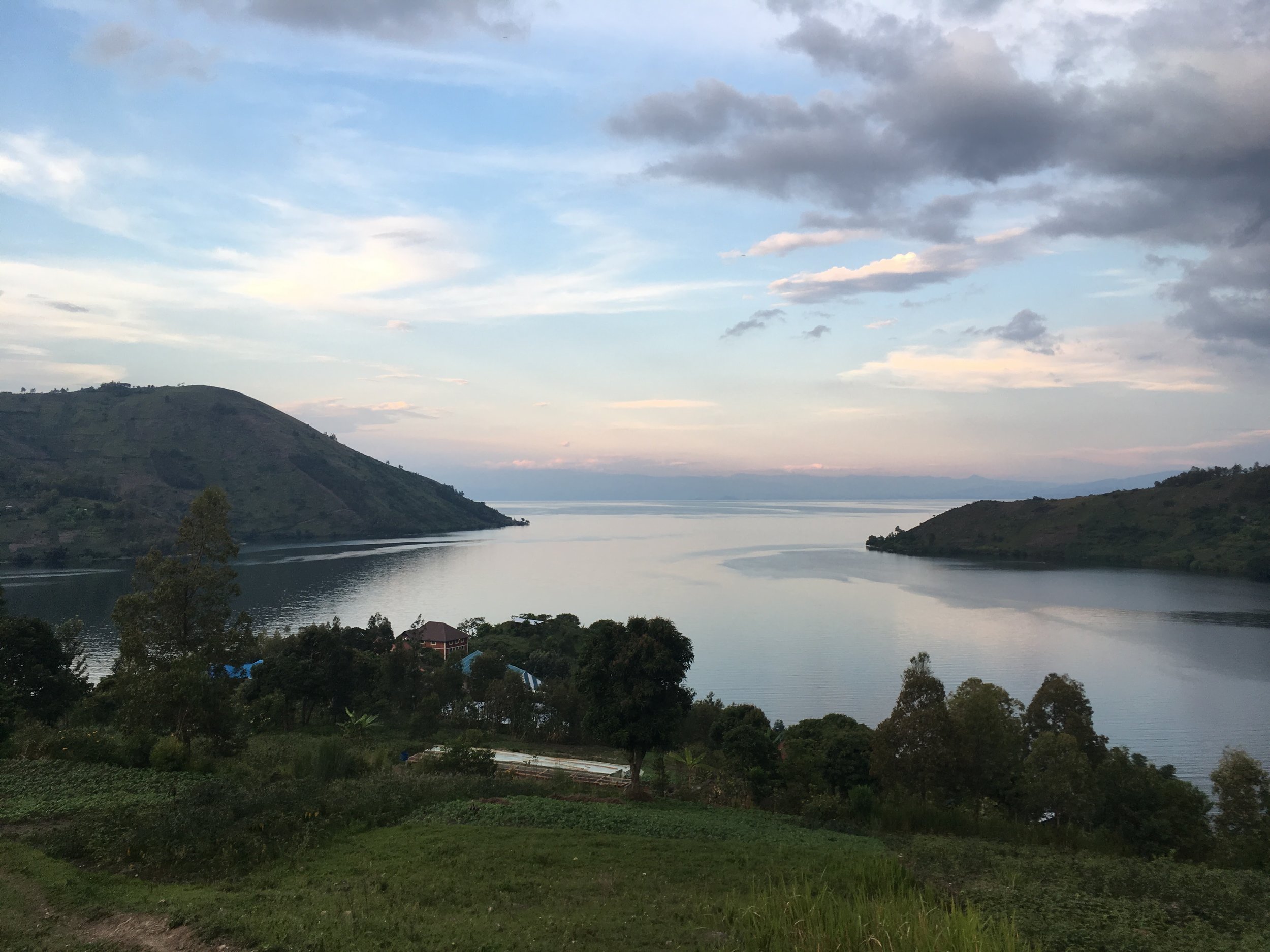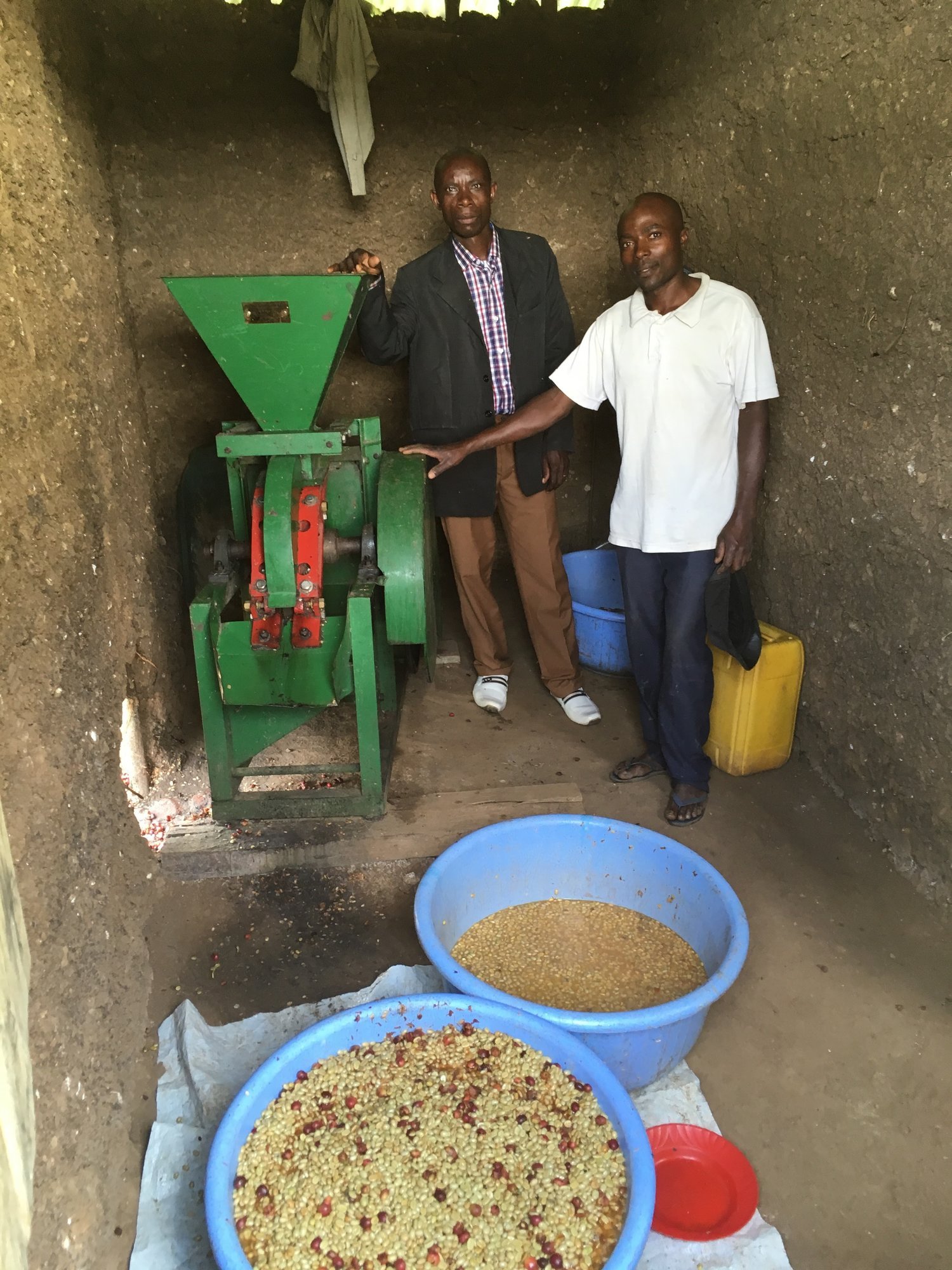personal coffee passport
Your coffee: an arabica and robusta blend
CONGO
FARMERS: Farmer group of SCPNCK Cooperative, Ngula Washing station
LOCATION: Ngula, Idwji Island, Democratic Republic of Congo
CULTIVARS: Arabica JBM (Typica), Bourbon
ALTITUDE: 1,600 - 1,800 meters above sea level
EXPORTER: SCPNCK Cooperative
IMPORTER: This Side Up Coffees
ROASTER: Local roasteries (see below)
About Ngula
The island of Idjwi is not a place you used to hear about often, but with the digital awakening of Africa and an influx of interest from the development community, we are starting to understand its equally tragic as wonderful history. A refuge for rebels, a smuggler's hotspot, a volcanic danger zone or the Kivu region's newest specialty coffee discovery - all describe this remote lake island accurately. In fact, the striking number of widows on the island was one of the main reasons for its coffee farming community to make a stand and organise itself to sell coffee independently through a cooperative structure. If the farmers worked together to create volume and share resources, they could demand better prices and stop smuggling. One of the coops that was created is our partner SCPNCK; and under the leadership of Gilbert Makelele, much good has happened. We are excited to have such passionate partners in Idjwi who are promoting such a noble cause: the possibility of a peaceful and independent livelihood for the island's current and future generation through a structure that is inclusive for the island's farmers and promotes cooperation between everyone. And on top of that, they have coffee that rivals any of the specialty superstars in the region. Here's to Idjwi's future!
India
FARM: 8 smallholder farmers of Srirangalli community
LOCATION: Kandankolli Village Karnataka, Coorg, India
CULTIVARS: Coffea canephora (robusta): congensis and old peredinia
ALTITUDE: 950 - 1,150 meters above sea level
EXPORTER: South India Coffee Company
IMPORTER: This Side Up Coffees
ROASTER: Local roasteries (see below)
ABOUT srirangalli
Most farmers in Srirangalli use walking as their transportation method and the only way their children can receive proper education is by leaving the community. Besides other issues, monsoons have deeply affected the area, slicing, not so long ago, a piece of the mountain. People at Srirangalli, however, are strong, very united and support each other constantly. Harvesting for each individual is done by all the members, in a farming system we've ventured to call "community farming". They are also agents for change. The idea was to work with coffee in close collaboration with community members. From there on, other projects would develop. However, the only way to have this conversation had to be through a community member. They needed Sunny, and Sunny trusted them and their judgment. The community agreed to join the project because they trusted Sunny, and Sunny trusted Komal from South India Coffee Company. The community is still not completely convinced about the benefits specialty coffee can offer, but the couple knows that, with time, they won't need convincing anymore: the benefits of quality will become palpable to all.
Coffee specs
what to taste for
Aroma: white pepper, cacao nibs
Body: full mouthfeel, powerful flavor experience
Acidity: gentle with dried fruits
Aftertaste: black pepper, dark chocolate, brown sugar
PROCESSING your coffee
The Congolese coffee: fully washed at micro-mills: wet fermented for 12 hours, washed with mountain water, shade dried and pre-sorted, then sun dried on raised beds. Naturals: first shade dried to 14%, then sun dried and consistently turned towards 11%.
The Indian coffee is a natural coffee, a specialty robusta. Farmers pick only the ripe fruit in several rounds, up to five per harvest. The coffee is pulped the same day and fermentation is done without the use of water, final processing happens at the Mooleh Manay Estate run by South India Coffee Company.
ROASTING YOUR COFFEE
The coffees are roasted by local roasters, like Lucifer in Eindhoven, Spot On in Amsterdam and Maalwerk in Delfzijl. The roast time is around 8 minutes to achieve a light roast. After the first crack, the coffee is quickly finished, to keep the citric fresh tastes in the cup, whilst also making space for the full bodies chocolates.
Relative PRICE BREAKDOWN
the price you pay:
€19,25 per kg
€5,95 per kg
The price farmers receive for growing, processing and exporting their coffee. For his breakdown, we us a blend that uses 66% Congo and 33% India. Proof of payment below.
€1,00 per kg
Shipping from Congo and Brazil to the Netherlands. Including freight, customs, insurance and financing costs.
€1,25 per kg
Remuneration for for importing the coffees. This includes warehousing charges, quality control, financing, and regular contact with the producers, all to be done by This Side Up Coffees.
€0,40 per kg
Transporting coffees from warehouse to roastery.
€4,50 per kg
Roasting fee of roasters like Lucifer and Maalwerk for roasting the coffees. This includes a roasting loss (evaporation) of 18-20% per kg.
€6,15 per kg
Fee that Rondje Koffie calculates. This includes coffee machines, maintenance, customer support and delivery.
THE CONTRACTS - PROVING THE PRICE
When you treat your partners as equal entrepreneurs and pay them accordingly, you’re proud of this relationship and you might as well show it all. Attached the buying contract for the three farms, which correspond to the prices allocated to the farmers + exporting partners in the three respective countries. A little legenda:
€1,00 is $1,00 (2022-2023 parity)
1 kg is 2,2 lbs (American pound)
To establish a good public benchmark, we used the criteria put out by the advice of RVO, the Netherlands Enterprise Agency:
“During the entire term of the Agreement, the coffee producer shall at all times receive at least the applicable Fairtrade Minimum Price per pound minus 25% + the applicable Fair Trade Premium per pound + the applicable Organic premium per pound (Organic Differential) + the additional RWS premium per pound (towards a living income) of ad. $ 0.30.”
Taking this calculation, for the arabica coffees (in this case both Congo and Brazil) we have a Fairtrade Minimum Price of $1.40/lbs, minus 25% + the applicable Fair Trade Premium ($0.20/lbs) + the applicable Organic premium per pound ($0.30/lbs) + the additional RWS premium ($0.30/lbs) = $1.85/lbs or €4.08/kg.
For the robusta coffee the Fairtrade Minimum Price is $1.05/lbs, minus 25% + the applicable Fair Trade Premium ($0.20/lbs) + the applicable Organic premium per pound ($0.30/lbs) + the additional RWS premium ($0.30/lbs) = $1.59/lbs or €3.51/kg.
DR OF CONGO, SCPNCK (COOP) WITH OWN EXPORT LICENSE - arabica
2021 HARVEST
Paid price (in contract) of $7.00/kg for the fully washed Kivu coffee from SCPNCK. This amount is paid directly to the cooperative, which has its own export license. Converting to euros, this is €7.00 per kg.
2022 HARVEST
Paid price (in contract) of $7.00/kg for the fully washed Kivu coffee from SCPNCK. This amount is paid directly to the cooperative, which has its own export license. Converting to euros, this is €7.00 per kg.
2023 HARVEST
Paid price (in contract) of $7.00/kg for the fully washed Kivu coffee from SCPNCK. This amount is paid directly to the cooperative, which has its own export license. Converting to euros, this is €7.00 per kg.
INDIA, srirangalli community and south india coffee company (EXPORTER) - robusta
2022/2023 HARVEST
Paid price (in contract) $5,83 per kg. Converting to euros, this is €5.83 per kg.
2023/2024 HARVEST
Paid price (in contract) $5,83 per kg. This equals a price of €5.83 per kg.
Pictures can be used for personal marketing purposes.




